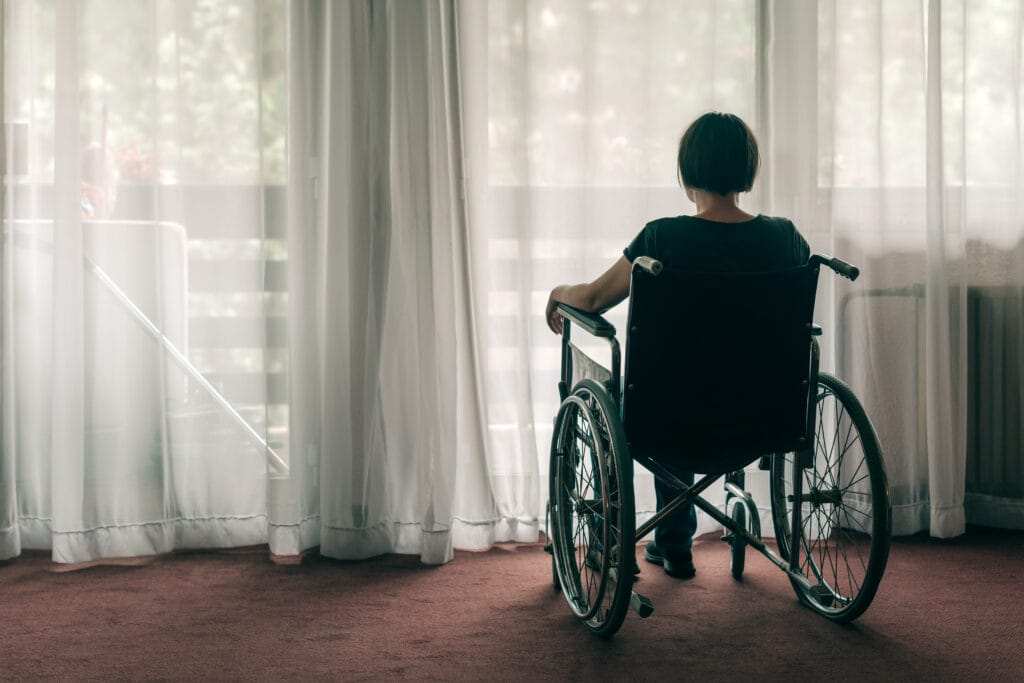(Oregon Right to Life) — A dangerous bill to legalize assisted suicide in New York has cleared the legislature and now awaits the signature of the state’s Democratic governor. The measure is similar in many ways to Oregon’s “Death With Dignity Act,” but goes even further by allowing doctors to prescribe lethal drugs to vulnerable New Yorkers with no mandated waiting period.
Democrats in the state Senate voted to pass the bill, dubbed the “Medical Aid in Dying Act,” on Monday. Medical Aid in Dying (MAiD) is a common euphemism employed by advocates of legalized assisted suicide.
The move by the New York Senate comes after the measure cleared the State Assembly in April and forwards the legislation to the desk of New York Governor Kathy Hochul.
In a June 9 press release, the New York Alliance Against Assisted Suicide blasted the state Senate’s passage of the bill as “a grave mistake for New York.” They said it “brings our state dangerously close to a public policy that many in the medical, disability, and mental health communities consider deeply flawed and unjust.”
“This is not compassionate care. It is a policy that exploits fear, undermines trust in the medical profession, and opens the door to abuse and neglect,” the group said, underscoring the “bipartisan opposition this bill has faced” and urging Governor Hochul to veto the measure and “uphold New York’s commitment to suicide prevention, protect vulnerable communities, and affirm that every life—regardless of disability, age, or diagnosis—is worthy of care, dignity, and protection.”
"The New York Alliance Against #AssistedSuicide called the Senate's passage 'a grave mistake for New York, 'arguing the bill includes no requirement that an individual seeking a lethal prescription first obtain a mental health evaluation.'"https://t.co/nnisN5Iexb
— New York Alliance Against Assisted Suicide (@NoSuicideNY) June 12, 2025
RELATED: Delaware Becomes 12th Jurisdiction to Legalize Physician-Assisted Suicide
To date, eleven states and Washington, D.C. have legalized assisted suicide. New York’s bill has particularly raised alarm bells for its lack of basic regulations and requirements. Under the “Medical Aid in Dying Act,” a patient over the age of 18 may receive a lethal prescription with no required waiting period.
Washington State bioethicist Richard Doerflinger told The Free Press this is the first time in his nearly four decades tracking assisted suicide laws that he has seen a bill with no waiting period. He said the proposed legislation would allow a patient, “in a moment of despair at first getting his or her diagnosis,” to decide “‘I just want to die,’ and sign off, and that’s the end of the process.”
In a June 10 op-ed, the Wall Street Journal’s Editorial Board said the lack of a waiting period “means there will soon be go-to suicide doctors.”
To qualify for a lethal prescription, patients seeking assisted suicide in New York would need to have been diagnosed with a “terminal illness” and given a prognosis of less than six months to live. However, the language of the legislation does not indicate whether or not the predicted death would occur with or without treatment.
“So many people living with chronic disease can become terminal if they stop their treatments,” Lydia Dugdale, a physician and ethicist at Columbia University, told The Free Press. “And that then expands eligibility pretty significantly.” She pointed to diabetes and HIV as examples of conditions that can become terminal if patients opt out of ongoing treatment.
The same problem exists in other states, including Oregon.
The Free Press highlighted the fact that Oregon law, which is currently more restrictive than New York’s proposed legislation (though activists are attempting to expand it) lists “‘qualifying illnesses’ for assisted suicide as including ‘anorexia, arthritis, blood disease, complications from a fall, hernia, kidney failure, medical care complications, musculoskeletal system disorders, sclerosis, and stenosis.’”
Furthermore, like in Oregon, New York’s proposed law would not require all patients to undergo a mental health evaluation prior to being prescribed lethal drugs.
In its statement, the New York Alliance Against Assisted Suicide said that this lack of a requirement “is deeply irresponsible.”
“Depression and suicidal ideation often accompany serious illness, and without a mandated psychological assessment, vulnerable individuals may be making irreversible decisions under the cloud of despair,” the group said. “Society doesn’t condone suicide for the healthy—why should it for those facing illness or disability?”
RELATED: American Medical Association Reaffirms Opposition to Assisted Suicide
Oregon mental health professionals have raised similar objections, especially in the context of the state’s proposed expansion of assisted suicide during this year’s legislative session.
Oregon’s current “Death With Dignity” law requires a “counseling referral” to an Oregon licensed psychologist or psychiatrist “[i]f in the opinion of the attending [prescribing] physician or the consulting physician a patient may be suffering from a psychiatric or psychological disorder or depression causing impaired judgment…”
But while Oregon physicians wrote 560 prescriptions during 2023, only three patients were referred for psychological or psychiatric evaluation.
Dr. Angela Plowhead, Psy.D., a licensed psychologist who specializes in cognitive and decision-making capacity assessment, told Oregon Right to Life in February that there ought to be “a pretty significant evaluation” for mental health and potential mood disorders when a person expresses a desire for assisted suicide. She said mood disorders are common among people who are diagnosed with terminal diseases, and that ruling them out in the case of an assisted suicide request is impossible even within Oregon’s current 15-day waiting period.
The bill to expand Oregon’s assisted suicide law, SB 1003, is currently active in the state legislature. This month, Oregon’s Senate Rules Committee advanced the bill in a 3-2 party-line vote.
READ: Physicians, Advocates Blast Oregon’s Radical Assisted Suicide Bill in Second Public Hearing
Hundreds of medical and mental health professionals, disability rights advocates, and private citizens in Oregon and throughout the country have submitted written testimony opposing the measure. Oregon Right to Life is opposed to SB 1003 and is active in lobbying against its passage.




